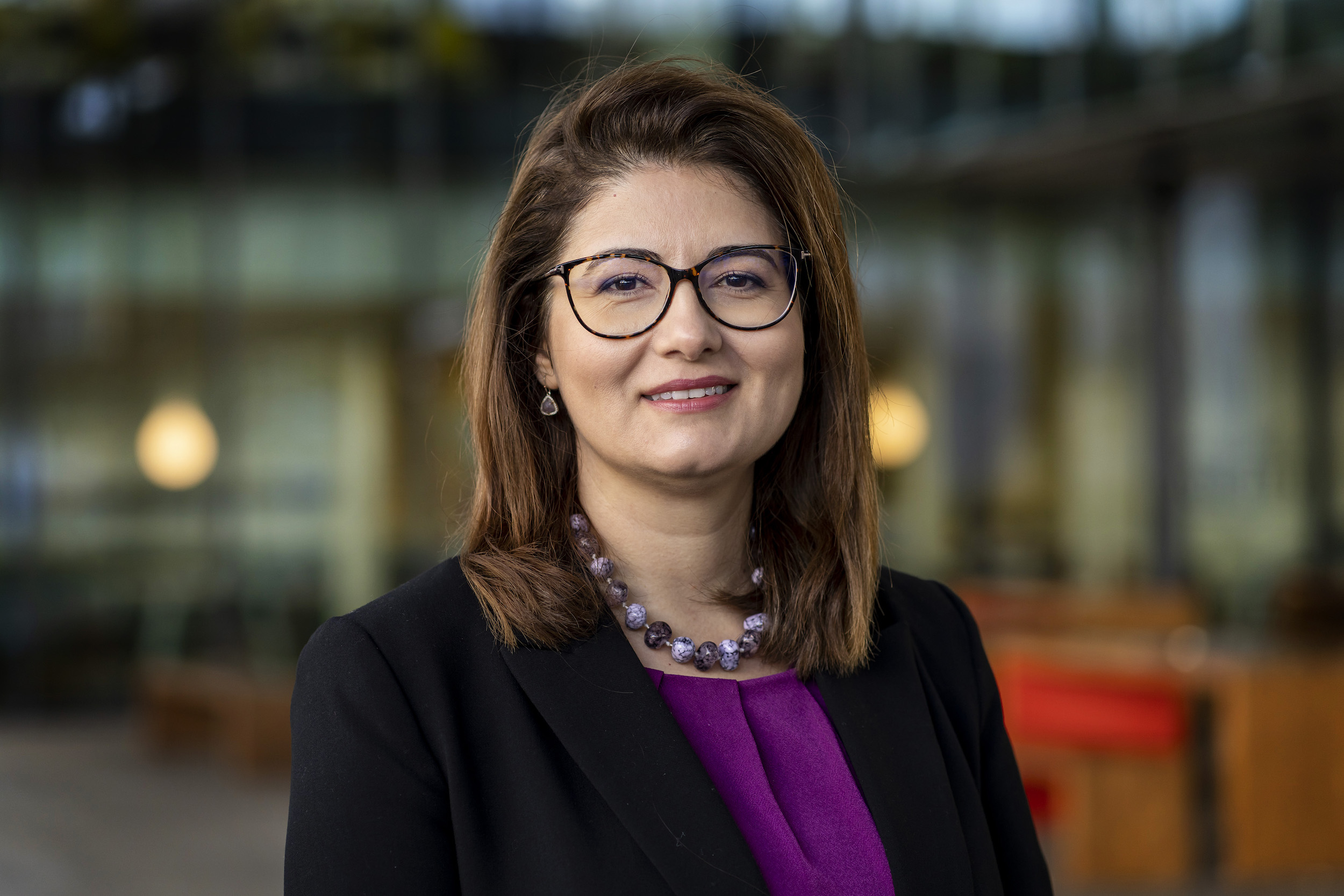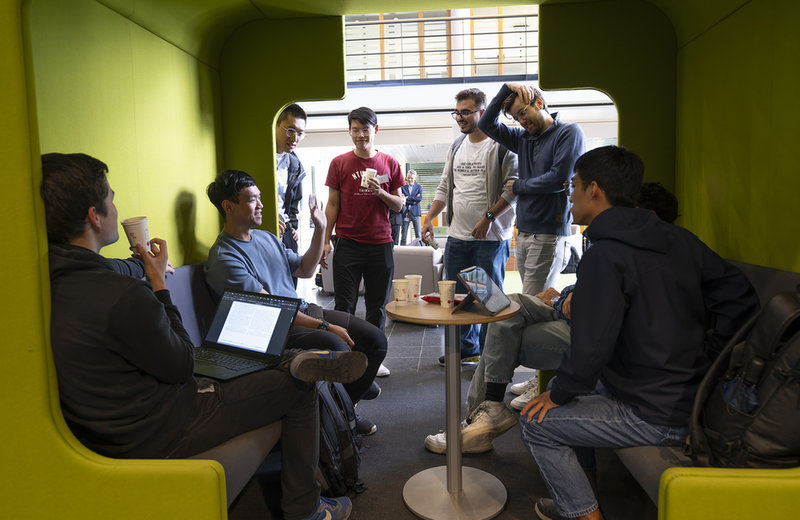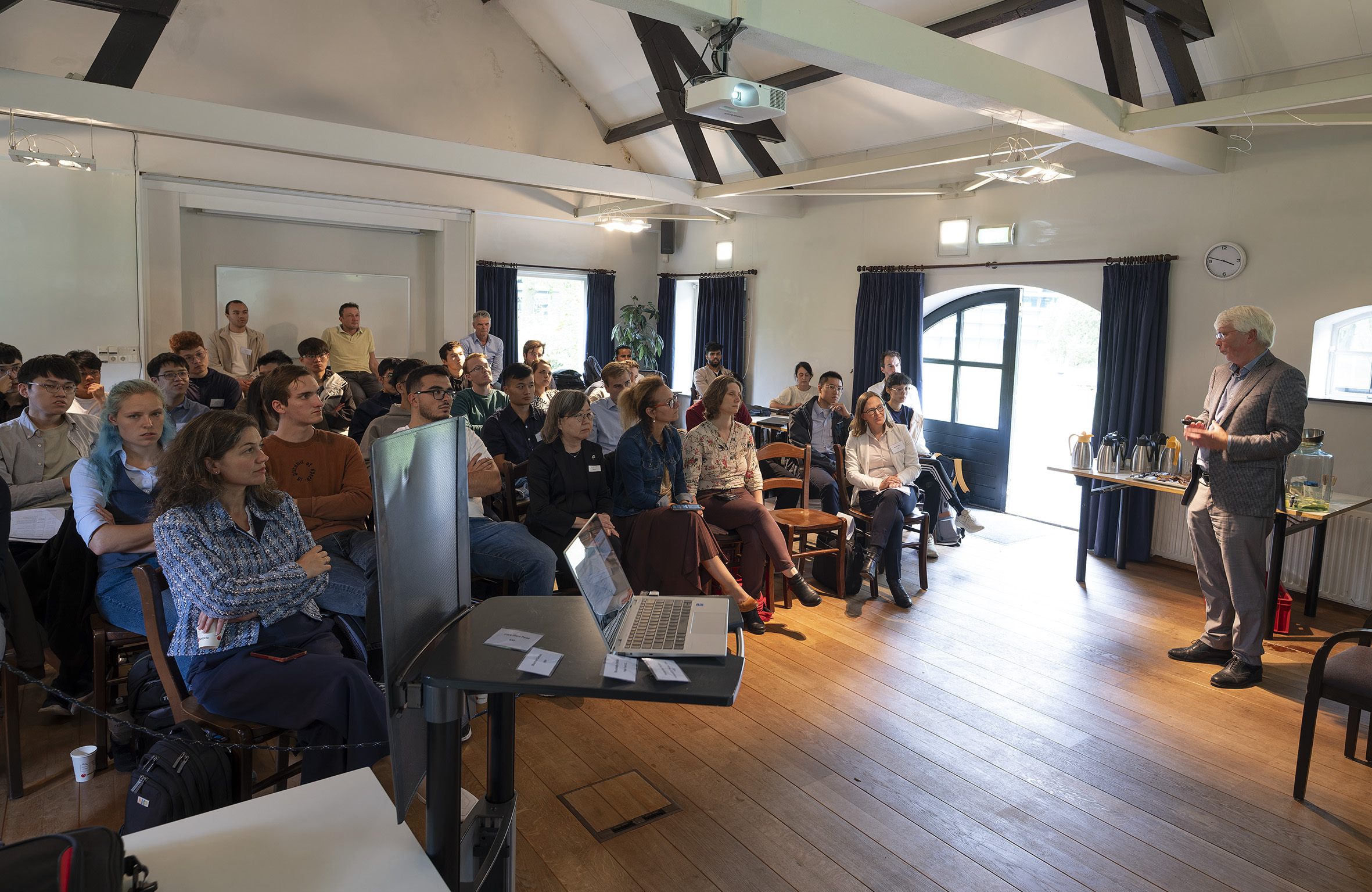4
Successful inaugural summer school
Just before the start of the academic year 2023-2024, academic and industrial leaders from the Netherlands and Taiwan came together on the TU/e campus. They offered a select group of talented students from both countries critical insights on current and future developments in semiconductors and photonics.
Between August 28th and September 1st, 30 students, 15 from the Netherlands and 15 from Taiwan, attended the inaugural Eindhoven-Taiwan Summer School on semiconductors and photonics. During five days, the bright and enthusiastic students were treated to engaging lectures and panel discussions by leading experts in semiconductors and photonics from academia and industry, such as world leaders ASML and Taiwan Semiconductor Manufacturing Company (TSMC). The program also included tours of cutting-edge labs at the premises of ASML, SMART Photonics and NXP, and social events for networking and cultural exchange between participants from the Netherlands and Taiwan.
The summer school was a joint initiative of TU/e and the National Taiwan University, aided by Lin-Lin Chin (TU/e Director of International Scientific Relations, Dean of and professor at the department of Industrial Design) who established the first contact between both institutions. ‘The summer school had three aims,’ says Aida Todri-Sanial, Scientific Director for the summer school and professor at TU/e’s Department of Electrical Engineering. ‘We wanted to educate students on the state of the art in semiconductors and photonics, build a talent pool, establish new strategic partnerships and strengthen the existing ones.’

"We acknowledge that the transition towards quantum secure networks has to be a gradual one"
Idelfonso Tafur Monroy | Founding father of this testbed

“We wanted to educate students on the state of the art in semiconductors and photonics, build a talent pool, and establish new and strengthen existing strategic partnerships.”
Aida Todri-Sanial | Full Professor | Eindhoven-Taiwan Summer School Scientific Director
Natural partners
From the get-go, PhotonDelta has been a natural partner in the endeavor, she says. ‘They are an important partner for TU/e when it comes to building a community.’ ‘There is a promising technology, and there are funds to move that technology forward. What we do not have yet, is enough human talent to make photonics fly,’ adds Ruud van Heur, interim Manager Human Capital Program at PhotonDelta. ‘That is why we are eager to support initiatives like these to attract and retain talent in this emerging field.’
Where Taiwan is one of the major players when it comes to the semiconductor industry, the Netherlands is gaining momentum in the field of integrated photonics, he states. ‘In this summer school, those two came together nicely.’ ‘We presented the students with advancements in both fields, and showed them the potential of combining both,’ adds Todri-Sanial. ‘Where are we in terms of Moore’s law? What is the future of the semiconductor industry, and how do important industrial actors like TSMC, ASML, NXP, and SMART Photonics view the technical roadmaps?’

Challenge in education
The 5-day summer school was structured thematically; each day had a different theme. Also, all social events were programmed with a specific intention. That worked out rather well, Van Heur and Todri-Sanial agree. ‘In addition, the students were presented with challenges they had to work on in groups over the week,’ the scientific director explains. There were challenges on photonics, terahertz technologies, advanced semiconductors, and on an educational program. At the end of the week, the students had to present their ideas on these subjects. ‘The project on the semiconductor education program turned out to be the winner, which was rather timely,’ says Van Heur. ‘One of the challenges we are facing when it comes to human capital, is that there is no dedicated Master’s on integrated photonics yet. The students came up with useful ideas on what such a program should entail in terms of courses and projects.’
The organizers look back on a very successful summer school, which they regard as the start of an important initiative for years to come. ‘Currently we are working on future editions. We have welcomed considerable interest from other potential partners, both inside and outside of EU,’ Todri-Sanial says. The specifics of the next edition such as who, what, where and when are still in the brainstorming phase. ‘We are committed to expanding this initiative, but we want to do so in a sustainable way.’
First and foremost, both organizers want to make sure that the summer school will not be an isolated academic effort, but an initiative that is grounded in the Eindhoven ecosystem and organized and executed in close connection with industrial partners. ‘We are ambitious, we want to aim high,’ Van Heur concludes. ‘Our first priority was and remains to be to establish an attractive, high quality summer school. With our first edition, we’ve set a high standard, with people like Peter Wennink from ASML and Arian Zwegers from the European Commission taking the time to enthuse our students and share their visions on the future with them.’
